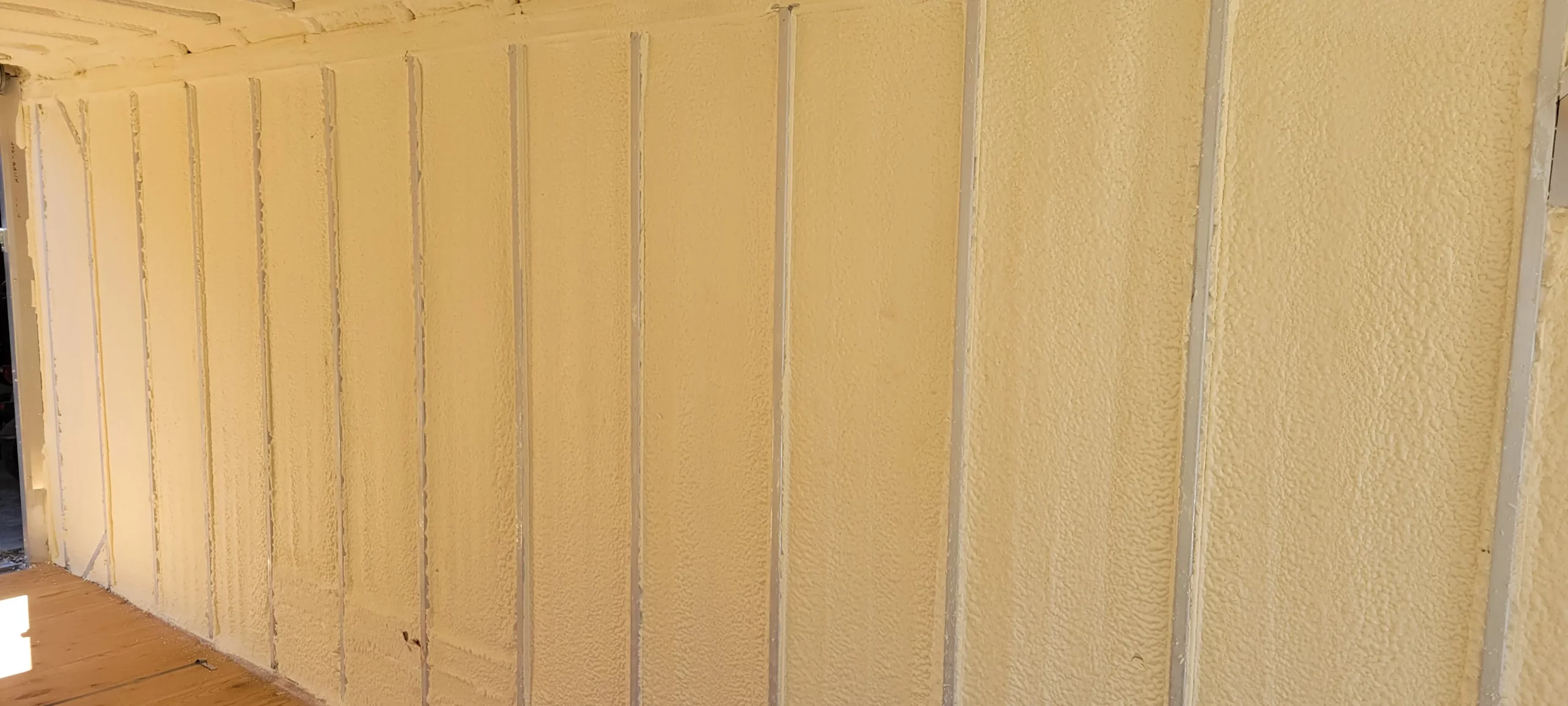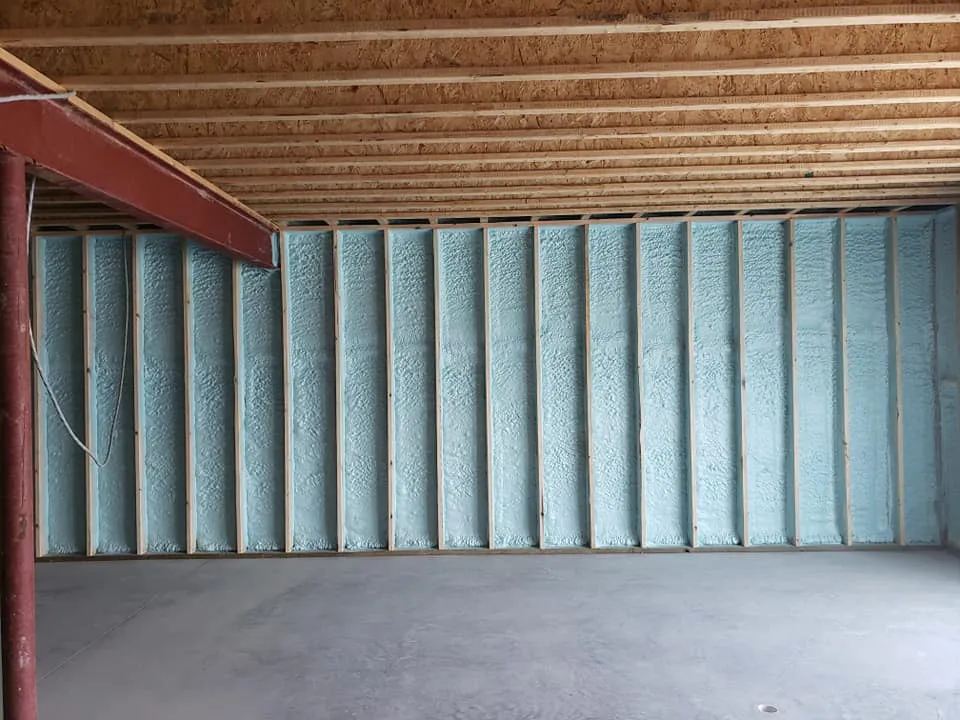Wall insulation directly improves HVAC efficiency by reducing heat transfer through exterior walls. It minimizes the workload on heating and cooling systems, maintains stable indoor temperatures, and lowers overall energy consumption. A proper wall insulation contractor helps reduce HVAC cycling and extends system life while providing better indoor comfort and air quality.
Introduction
The performance of any heating and cooling system depends heavily on how well a home retains conditioned air. Wall insulation plays a central role in this equation. When installed properly, it helps stabilize indoor temperatures, which directly affects the efficiency and longevity of HVAC systems.
This article outlines how wall insulation influences HVAC performance, including how it reduces thermal exchange, minimizes energy waste, and contributes to consistent comfort. It also breaks down material types, common insulation mistakes, and practical insights from real projects—giving you a technical yet accessible look into why insulation isn’t just about comfort, but also about performance and efficiency.
How Wall Insulation Affects HVAC Efficiency
Wall insulation reduces the amount of energy lost through the building envelope. Without this barrier, HVAC systems must compensate for constant heat gain or loss.
Thermal Resistance and Energy Loss
The R-value measures insulation’s resistance to heat flow. The higher the R-value, the better the thermal barrier. Properly insulated walls reduce the amount of conditioned air escaping or external heat entering the home.
- In summer, insulation prevents warm outdoor air from infiltrating indoor spaces, reducing the cooling demand.
- In winter, it helps retain heat indoors, lowering the need for continuous furnace operation.
Real-world example: A Lansing homeowner upgraded wall insulation from R-11 to R-21. After installation, their heating system ran 30% fewer hours per day during peak cold months.
Reduced HVAC Cycling
Frequent on-off cycling puts strain on HVAC equipment. With consistent insulation, indoor temperature fluctuates less, allowing the system to run more steadily at optimal levels. This improves performance and can extend the lifespan of HVAC units.
Improved Air Sealing
Wall insulation combined with proper air sealing blocks drafts and unintended air exchanges. While insulation resists heat flow, sealing prevents air movement. The synergy between the two is essential for HVAC systems to operate efficiently.
Types of Wall Insulation and Their Impact on HVAC Performance
Choosing the right insulation type matters for both energy performance and system compatibility.
Fiberglass Batt Insulation
Fiberglass is widely used in Michigan homes due to its affordability and effectiveness in standard framing.
- Moderate R-values (typically R-13 to R-21 for walls)
- Easy to install in open wall cavities
- Performs best when paired with proper vapor barriers
Downside: Prone to gaps and compression, which reduce performance.
Spray Foam Insulation
Spray foam offers both insulation and air sealing properties. It expands on contact, filling wall cavities completely.
- High R-value per inch (R-6 to R-7)
- Excellent for sealing gaps, cracks, and seams
- Reduces HVAC workload significantly
Real-world example: A homeowner in Grand Rapids replaced fiberglass with closed-cell spray foam. Their air conditioning usage dropped by 25% during peak summer months.
Blown-In Cellulose
Cellulose insulation, typically used for retrofits, is dense and effective in irregular cavities.
- Better air blocking than fiberglass
- Treated for fire resistance and pest deterrence
- Moderate to high R-value (R-3.2 to R-3.8 per inch)
Signs of Poor Wall Insulation Affecting HVAC Efficiency
Insufficient insulation often leads to inconsistent temperatures, high energy bills, and increased system wear.
Hot or Cold Spots
Uneven insulation coverage causes specific rooms or walls to feel noticeably warmer or cooler. This forces HVAC systems to overcompensate.
Long Heating or Cooling Cycles
If it takes longer for your home to reach or maintain set temperatures, it may be due to poor thermal resistance in your walls.
Constant System Operation
When walls leak heat, HVAC systems may run non-stop to maintain indoor conditions—wasting energy and accelerating equipment fatigue.
HVAC Efficiency Improvements with Insulation Upgrades
Wall insulation doesn’t just save energy—it enhances system operation across multiple performance metrics.
| Factor | Without Proper Insulation | With Quality Wall Insulation |
|---|---|---|
| HVAC runtime hours/day | 10–12 hours | 6–8 hours |
| Indoor temperature variance | ±5°F | ±1–2°F |
| Seasonal energy bills | High | Moderate to low |
| System maintenance needs | Frequent | Reduced |
Environmental and Health Benefits of Efficient Wall Insulation
Wall insulation has environmental advantages beyond efficiency. Lower energy use reduces greenhouse gas emissions from local utilities.
Improved Indoor Air Quality
By sealing wall cavities and reducing drafts, insulation helps prevent outdoor pollutants, allergens, and moisture from entering living spaces.
Mold and Moisture Control
Insulation slows down condensation buildup inside walls. When combined with proper vapor barriers and air sealing, it reduces the risk of mold growth—protecting both the building structure and occupant health.
Common Questions
How does wall insulation directly affect HVAC performance?
Wall insulation slows heat transfer through exterior surfaces. This reduces the load on HVAC systems, allowing them to operate more efficiently and maintain temperatures with less effort.
What type of wall insulation provides the best HVAC efficiency?
Closed-cell spray foam generally offers the best performance because it combines high R-value and air sealing in one material. It significantly lowers HVAC cycling and air leakage.
Can improving wall insulation extend HVAC system life?
Yes. When systems don’t run as frequently or at full capacity, internal components experience less wear, reducing the need for repairs and replacements.
How do I know if my wall insulation is underperforming?
Signs include temperature swings between rooms, unusually high energy bills, and systems running constantly or taking too long to heat or cool the home.
Conclusion
Wall insulation plays a direct role in how well a home’s HVAC system performs. By resisting heat flow and reducing air infiltration, insulation lowers energy use, enhances comfort, and extends the life of heating and cooling systems. Whether upgrading old materials or building new, hiring a professional spray foam insulation company for your needs can lead to meaningful improvements in performance, efficiency, and long-term savings.
FAQs
How much energy can I save by improving wall insulation? Depending on the existing insulation level, energy savings can range from 10% to 30%. Proper wall insulation reduces HVAC runtime and stabilizes indoor temperatures.
Is wall insulation only important in winter? No. Wall insulation benefits HVAC systems in both heating and cooling seasons. It keeps heat out during summer and retains warmth during winter.
Does spray foam work better than fiberglass for wall insulation? Spray foam generally provides a tighter seal and higher R-value per inch, which means it reduces thermal loss and air leakage more effectively than fiberglass.
Can better wall insulation help with humidity control? Yes. Air sealing and thermal barriers reduce moisture transfer, helping manage indoor humidity and preventing condensation that leads to mold.
What’s the best R-value for wall insulation in Michigan? Most Michigan homes benefit from wall insulation rated between R-19 and R-21, though higher values may be recommended for older homes or colder regions.
Author: Daniel Walker, owner of Colony Insulation and Spray Foam Magazine’s 2024 Contractor of the Year, leads with over two decades of experience in the insulation industry. Passionate about energy efficiency and customer satisfaction, Daniel is dedicated to delivering high-performance insulation solutions across Michigan with precision and care.
Reviewer: Jennifer Morales, a seasoned insulation consultant with over 8 years of industry experience, specializes in residential and commercial energy solutions. Known for her practical insights and quality-first approach, Jennifer ensures all content reflects real-world expertise and up-to-date best practices.

